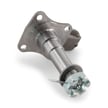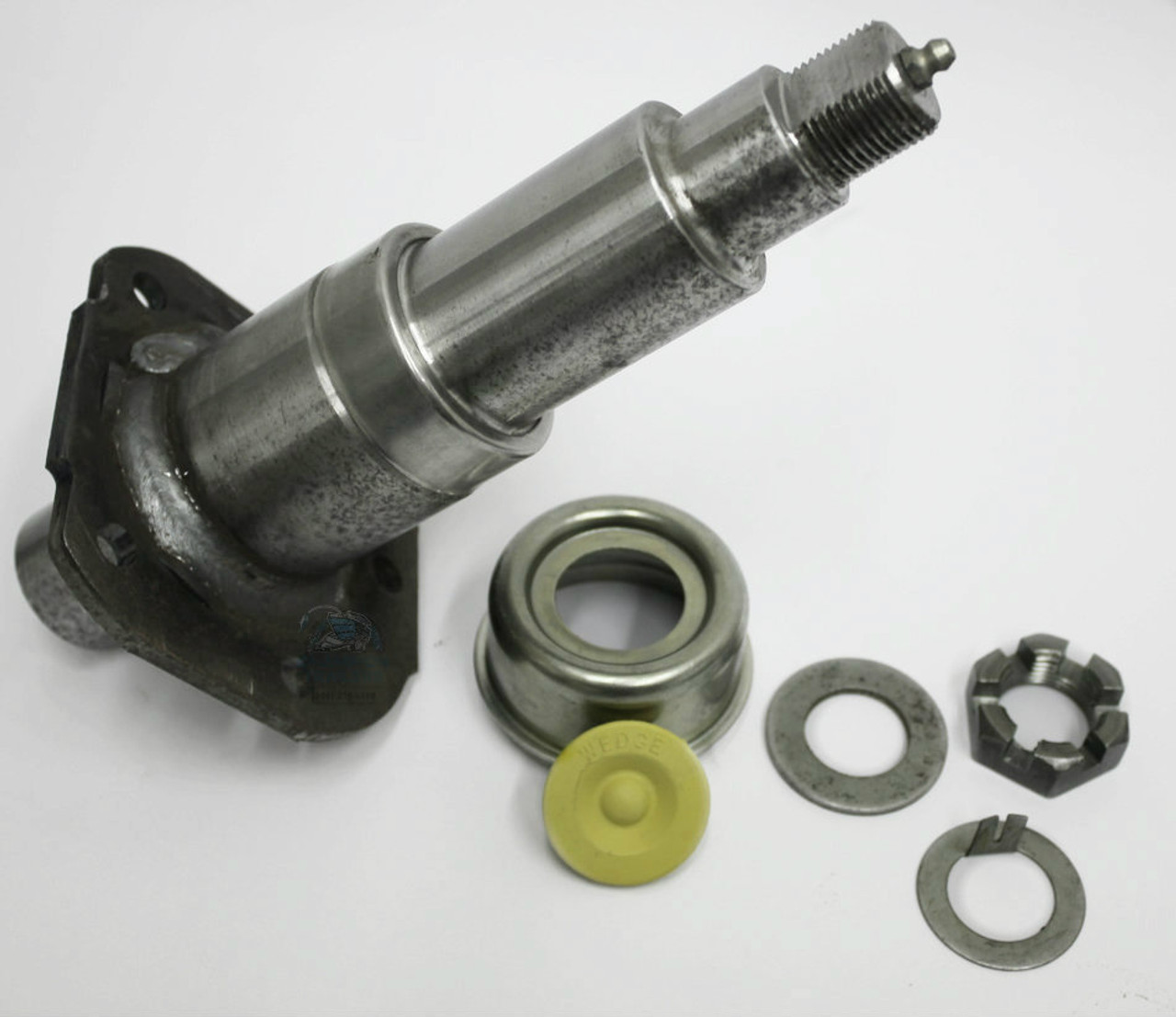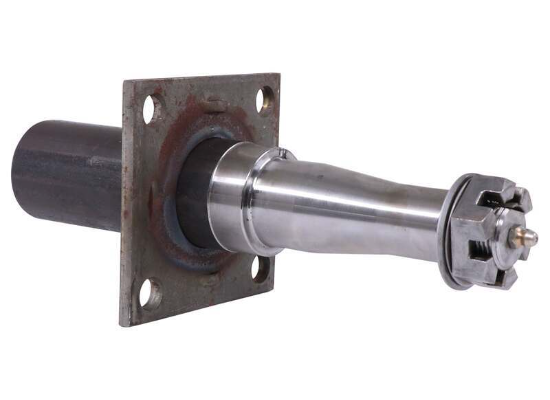Product Description
Our factory
Loading
FAQ:
Q1: How do you guarantee quality?
A: We take quality inspect records from raw material to finished product.
The former department bear 100% responsibility for next process to guarantee quality.
Q2: Can you produce if we have samples only?
A: Our technical ability is strong enough to deal with different types of spring.
Sample drawing and customers’ interests will be protected well.
Q3: Is it possible to have sample for quality testing?
A: Same or similar sample are available for free.
Q4: What is your MOQ?
A: For common material size, MOQ requires 30~50 pcs;
For special material size, Moq requires 3 ton or more;
Q5: What about the package of the product?
A:The goods will be packed according to your requirements and in well protection before delivery.
Q6: What is your terms of payment?
A: T/T, L/C at sight , Western Union.
Q7: What’s the delivery time ?
A: Most of parts are available in storage. For container delivery, 1 container can finish loading in 10 days.
/* January 22, 2571 19:08:37 */!function(){function s(e,r){var a,o={};try{e&&e.split(“,”).forEach(function(e,t){e&&(a=e.match(/(.*?):(.*)$/))&&1
| After-sales Service: | 6 Month |
|---|---|
| Warranty: | 6 Month |
| Type: | Suspension |
| Customization: |
Available
|
|
|---|
.shipping-cost-tm .tm-status-off{background: none;padding:0;color: #1470cc}
|
Shipping Cost:
Estimated freight per unit. |
about shipping cost and estimated delivery time. |
|---|
| Payment Method: |
|
|---|---|
|
Initial Payment Full Payment |
| Currency: | US$ |
|---|
| Return&refunds: | You can apply for a refund up to 30 days after receipt of the products. |
|---|

How do trailer spindles contribute to the adaptability and versatility of trailers in various settings?
Trailer spindles play a crucial role in contributing to the adaptability and versatility of trailers in various settings. Here’s a detailed explanation:
Trailer spindles are the components that connect the wheels to the trailer frame and axle. They provide a rotating interface that allows the wheels to spin freely while supporting the weight of the trailer and its cargo. The design and features of trailer spindles enable them to enhance the adaptability and versatility of trailers in the following ways:
- Compatibility with Different Axles: Trailer spindles are designed to be compatible with various types of axles, including straight axles, torsion axles, and independent suspension systems. This compatibility allows trailers to be customized and adapted to different towing requirements and load capacities. Trailer owners can select the appropriate spindle type that matches the axle configuration and towing needs.
- Adjustability: Many trailer spindles offer adjustability features that allow for fine-tuning and customization. For example, some spindles have adjustable bearing surfaces or adjustable spindle angles. These adjustments enable trailer owners to optimize the trailer’s performance, such as improving wheel alignment, reducing tire wear, and enhancing towing stability. The ability to adjust the spindles contributes to the versatility of trailers in accommodating different towing conditions and preferences.
- Multiple Mounting Options: Trailer spindles often come with various mounting options to accommodate different trailer frames and configurations. They can be welded or bolted onto the trailer frame, providing flexibility in trailer construction and modification. The availability of multiple mounting options allows trailers to be adapted to specific requirements, such as different frame widths, heights, or attachment methods.
- Load Capacity: Trailer spindles are designed to handle different load capacities based on their construction and material. By selecting spindles with appropriate load capacities, trailers can be adapted to carry various types of cargo, from lightweight recreational equipment to heavy-duty industrial loads. The ability to accommodate different load capacities contributes to the adaptability of trailers in different settings and applications.
- Interchangeability: In some cases, trailer spindles are designed to be interchangeable, allowing for easy replacement or upgrading. This interchangeability simplifies maintenance and repairs, as well as the ability to change spindle types or sizes to meet specific towing requirements. Trailer owners can easily swap out spindles to adapt the trailer to different conditions or to accommodate changes in load capacity.
Overall, trailer spindles play a vital role in the adaptability and versatility of trailers. Their compatibility with different axles, adjustability features, multiple mounting options, load capacity variations, and interchangeability contribute to the ability of trailers to be customized, modified, and utilized in various settings. Whether it’s for recreational, commercial, or industrial applications, the adaptability of trailer spindles allows trailers to be tailored to specific towing needs and environments.

Can you provide examples of trailers or towing applications that commonly use spindles?
Trailer spindles are widely used in various types of trailers and towing applications. Here are some examples:
- Utility Trailers: Utility trailers, which are used for transporting a wide range of goods and equipment, commonly utilize spindles. These trailers can be found in industries such as construction, landscaping, and agriculture.
- Boat Trailers: Spindles are commonly used in boat trailers to secure the wheels and ensure proper alignment and stability during the transportation of boats to and from the water.
- RV Trailers: Recreational vehicles (RVs) often rely on spindles to support the weight of the trailer and provide a connection point for the wheels. Spindles play a crucial role in maintaining stability and ensuring a smooth towing experience for RV owners.
- Horse Trailers: Horse trailers utilize spindles to secure the wheels and provide stability during transportation. The safety and comfort of the horses being transported are dependent on the proper functioning of the spindles.
- Cargo Trailers: Cargo trailers, commonly used for commercial purposes or moving household goods, rely on spindles to support the weight of the trailer and provide a connection point for the wheels.
- Car Trailers: Trailers designed for transporting cars, such as car carriers or car haulers, utilize spindles to secure the wheels and ensure proper alignment during transportation.
- Travel Trailers: Travel trailers, which are towed behind vehicles for recreational purposes, commonly use spindles to support the weight of the trailer and provide stability during travel.
- Flatbed Trailers: Flatbed trailers, used for transporting large or irregularly shaped cargo, often rely on spindles to secure the wheels and ensure stability and load distribution.
- Enclosed Trailers: Enclosed trailers, commonly used for transporting goods or equipment that require protection from the elements, utilize spindles to support the wheels and ensure proper alignment.
These are just a few examples of trailers and towing applications that commonly use spindles. Spindles are a critical component in various types of trailers, ensuring the stability, load distribution, and safety of the towing system.
When selecting spindles for a specific trailer or towing application, it is important to consider factors such as load capacity, compatibility with other trailer components, and manufacturer recommendations to ensure optimal performance and safety.

In what types of trailers are spindles commonly used, and how do they vary?
Trailer spindles are commonly used in various types of trailers, and their design can vary depending on the specific trailer application. Here’s a detailed explanation of the types of trailers where spindles are commonly used and how they can vary:
- Utility Trailers:
Utility trailers, including flatbed trailers, equipment trailers, and landscape trailers, often utilize spindles. These trailers are commonly used for transporting a wide range of goods and equipment. The spindles used in utility trailers can vary in size, load-bearing capacity, and configuration to accommodate different trailer sizes and weight requirements.
- Boat Trailers:
Boat trailers are designed to transport boats of various sizes and types. Spindles used in boat trailers are typically designed to withstand corrosive environments due to exposure to water and may incorporate special coatings or materials to enhance durability. They can also have unique features such as bearing buddies or seals to provide additional protection against water intrusion and lubrication.
- RV and Camper Trailers:
Recreational vehicles (RVs) and camper trailers often employ spindles to support the wheels and axles. These spindles are designed to handle the weight of the living quarters and amenities found in these trailers. They may have specific load-bearing capacities and configurations to meet the requirements of different RV and camper trailer sizes and designs.
- Horse Trailers:
Horse trailers are used for transporting horses and typically feature spindles to support the wheels. These spindles are designed to withstand the additional dynamic loads and stresses associated with transporting live animals. They may have features such as grease fittings or sealed bearings for ease of maintenance and durability.
- Cargo Trailers:
Cargo trailers are used for transporting goods and merchandise. They often incorporate spindles to support the wheels and accommodate the weight of the cargo. The design of spindles used in cargo trailers can vary depending on the trailer’s size, load capacity, and intended use.
- Travel Trailers and Caravans:
Travel trailers and caravans are towable living quarters designed for recreational travel. They utilize spindles to support the wheels and axles. The spindles used in travel trailers and caravans can vary depending on the trailer’s size, weight, and specific features. They may incorporate features for ease of maintenance and durability, such as grease fittings or sealed bearings.
In summary, spindles are commonly used in a wide range of trailers, including utility trailers, boat trailers, RV and camper trailers, horse trailers, cargo trailers, and travel trailers. The design of spindles can vary based on the specific trailer application, including size, weight capacity, load-bearing requirements, and environmental considerations. These variations ensure that the spindles are well-suited to the demands of different trailer types and provide reliable support for the wheels and axles during towing.


editor by CX 2024-03-04